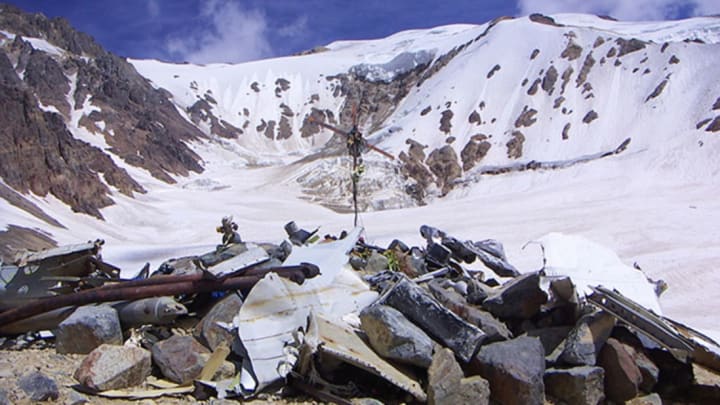In October 1972, a Uruguayan plane en route to Santiago, Chile from Montevideo crashed in the Andes. Of the 45 passengers on board, 25 survived the landing, but only 16 would make it out of the mountains alive. They survived for more than two months in frigid conditions at a high altitude, in part by eating human flesh. (In 1993, Ethan Hawke starred in Alive, a film version of the story.) More than 30 years later, one of those survivors received an unexpected gift: the wallet he lost.
In 2005, Ricardo Peña—a musician and mountaineer based in Colorado—trekked to the crash site on horseback with a local guide. In the midst of the wreckage still strewn across the rugged terrain, he discovered a shredded coat. Inside the pocket, he found a wallet with the ID of survivor Eduardo Strauch, receipts, and cash—both American dollars and Uruguayan pesos. He and his guide, Mario Perez, also found a used roll of film, sunglasses, and a knife fashioned out of what seemed to be plastic from one of the plane’s windows.
With the help of the owner of the hostel where Peña was staying in El Sosneado—the nearest village to the crash site—they were able to call Strauch in Montevideo. By coincidence, a week after Peña visited, another crash survivor—Alvaro Mangino—came to the site, and was able to take the wallet and belongings to Strauch.
The discovery forged a deep friendship between the mountaineer and the crash survivor. Peña and Strauch would later meet up in Mexico, and ended up going into business together. The two have teamed up to lead their own trips to the plane crash site together each year since 2006, called Andes Survivor Expeditions.
